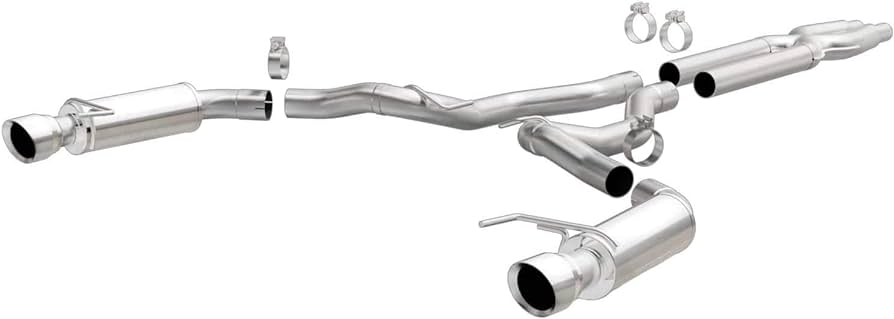There are several reasons why car AC systems may develop leaks. One common cause is age and wear and tear. Over time, the seals and hoses in the AC system can deteriorate, leading to small cracks or holes that allow refrigerant to escape. Another common cause is damage from road debris or accidents. If a hose or component of the AC system gets damaged, it can result in a leak.
Leaking refrigerant can have a significant impact on the performance of the AC system. When there is a leak, the refrigerant level decreases, causing the system to work harder to cool the air. This can result in reduced cooling capacity and longer cooling times. Additionally, low refrigerant levels can put strain on the compressor, which can lead to further damage and costly repairs if not addressed promptly.
Signs and Symptoms of Car AC Leaks
There are several signs that indicate a car AC system has a leak. One common symptom is reduced cooling performance. If you notice that your AC is not blowing cold air as it used to or takes longer to cool down the car, it could be a sign of a leak. Another sign is hissing or bubbling noises coming from the AC system. This indicates that refrigerant is escaping from the system.
Other symptoms include an unpleasant odor when the AC is turned on, oil stains or wet spots near AC components, and visible signs of refrigerant leakage such as frost or ice buildup on the AC lines or components. If you notice any of these signs, it is important to address the issue promptly to prevent further damage to the AC system.
Common Types of Car AC Leaks
There are several types of leaks that can occur in a car AC system. One common type is a leak in the hoses or fittings. Over time, the rubber hoses and fittings can deteriorate, leading to small cracks or holes that allow refrigerant to escape. Another type of leak is a leak in the compressor shaft seal. The compressor is responsible for compressing the refrigerant and circulating it through the AC system. If the shaft seal becomes worn or damaged, it can result in a refrigerant leak.
Other types of leaks include leaks in the evaporator coil, condenser coil, or expansion valve. The evaporator coil is located inside the car’s cabin and is responsible for cooling the air. If it develops a leak, it can result in reduced cooling performance. The condenser coil is located in front of the car’s radiator and helps dissipate heat from the refrigerant. If it develops a leak, it can cause a loss of refrigerant and reduced cooling capacity. The expansion valve regulates the flow of refrigerant through the AC system. If it develops a leak, it can result in improper refrigerant flow and reduced cooling performance.
Easy DIY Solutions for Car AC Leaks
| Common Types of Car AC Leaks | Description | Possible Causes |
|---|---|---|
| Refrigerant Leak | Loss of refrigerant from the AC system | Worn out hoses, damaged compressor, faulty O-rings, or loose fittings |
| Evaporator Leak | Leakage of refrigerant from the evaporator core | Corrosion, physical damage, or clogged drain tubes |
| Condenser Leak | Leakage of refrigerant from the condenser | Physical damage, corrosion, or clogged fins |
| Compressor Leak | Leakage of refrigerant from the compressor | Worn out seals, damaged compressor, or loose fittings |
| Accumulator Leak | Leakage of refrigerant from the accumulator | Worn out seals, physical damage, or clogged tubes |
If you have identified a minor AC leak in your car, there are some simple steps you can take to fix it yourself. One option is to use an AC leak sealant. These sealants are designed to seal small leaks in the AC system and prevent further refrigerant loss. They are typically added to the AC system through the low-pressure port and circulate with the refrigerant to seal any leaks.
Another option is to replace any damaged hoses or fittings yourself. This requires identifying the source of the leak and purchasing the appropriate replacement parts. Once you have the new parts, you can remove the old ones and install the new ones following the manufacturer’s instructions.
It is important to note that these DIY solutions are only suitable for minor AC leaks. If you have a major leak or are unsure about how to proceed, it is best to seek professional help to avoid further damage to the AC system.
Professional Repair Options for Car AC Leaks
In some cases, it may be necessary to seek professional help for AC leak repairs. This is especially true if you have a major leak or if you are unsure about how to properly diagnose and fix the problem. A professional technician will have the knowledge and expertise to identify the source of the leak and recommend the appropriate repair solution.
One common repair option is to replace any damaged components of the AC system. This may include replacing hoses, fittings, seals, or even the compressor if necessary. A professional technician will be able to properly diagnose the issue and recommend the best course of action.
Another repair option is to perform a refrigerant leak test. This involves adding a special dye to the AC system that will circulate with the refrigerant. The technician can then use a UV light to detect any leaks in the system. Once the source of the leak is identified, appropriate repairs can be made.
Prevention Techniques for Car AC Leaks

Preventing AC leaks from occurring in the first place is always preferable to having to deal with repairs. There are several techniques that car owners can use to prevent AC leaks. One important tip is to regularly inspect and maintain your AC system. This includes checking for any signs of leaks, such as oil stains or wet spots near AC components, and addressing them promptly.
Another prevention technique is to keep your car’s AC system clean and free from debris. Dirt and debris can clog up the AC system and cause it to work harder, increasing the risk of leaks. Regularly cleaning the AC system, including the condenser coil and air filters, can help prevent this.
Additionally, it is important to use your car’s AC system regularly, even during the winter months. This helps keep the seals and hoses lubricated and prevents them from drying out and cracking. If you only use your AC system sporadically, it can increase the risk of leaks.
Maintenance Tips for Your Car AC System
Regular maintenance is key to keeping your car’s AC system in good condition and preventing leaks. There are several maintenance tasks that car owners can perform themselves to ensure their AC system is working properly.
One important maintenance task is to regularly check and replace the air filters. The air filters help keep dirt and debris out of the AC system, preventing clogs and reducing the risk of leaks. It is recommended to check the air filters every few months and replace them if they are dirty or clogged.
Another maintenance task is to clean the condenser coil regularly. The condenser coil is located in front of the car’s radiator and can become clogged with dirt and debris over time. This can reduce the efficiency of the AC system and increase the risk of leaks. Cleaning the condenser coil with a soft brush or compressed air can help prevent this.
It is also important to have your AC system inspected and serviced by a professional technician on a regular basis. They can check for any signs of leaks or other issues and perform any necessary repairs or maintenance tasks.
Troubleshooting Car AC Problems
In addition to preventing and addressing AC leaks, it is also important to be able to troubleshoot other common AC problems. One common issue is a lack of cold air coming from the vents. This can be caused by a variety of factors, including low refrigerant levels, a faulty compressor, or a clogged expansion valve. Troubleshooting these issues involves checking the refrigerant levels, inspecting the compressor and expansion valve, and cleaning or replacing any components as necessary.
Another common issue is strange noises coming from the AC system. This can be caused by a variety of factors, including a worn-out compressor, a loose belt, or a faulty fan motor. Troubleshooting these issues involves inspecting the various components of the AC system and identifying the source of the noise. Once the source is identified, appropriate repairs can be made.
Final Thoughts on Solving Car AC Leak Problems
In conclusion, addressing car AC leaks promptly and effectively is essential for maintaining a functioning AC system and ensuring a comfortable driving experience. Understanding the causes of AC leaks, recognizing the signs and symptoms, and knowing how to prevent and troubleshoot AC problems are all important skills for car owners. Whether you choose to tackle minor AC leaks yourself or seek professional help, it is important to address the issue promptly to prevent further damage to your car’s AC system. Regular maintenance and inspections can also help prevent leaks and other AC problems from occurring in the first place.
If you’re dealing with a car AC leak, you’ll want to check out this helpful article on how to depressurize your car AC system. It provides step-by-step instructions on safely releasing the pressure in your AC system before attempting any repairs. By following these guidelines, you can avoid potential hazards and ensure a successful fix for your car’s AC leak. For more information, click here: https://drivenmavens.com/how-to-depressurize-car-ac-system/.
FAQs
What are common causes of car AC leaks?
Common causes of car AC leaks include damaged or worn out seals, hoses, or O-rings, clogged or dirty condenser or evaporator, and corrosion or damage to the AC system components.
How can I detect a car AC leak?
You can detect a car AC leak by looking for signs of refrigerant leakage such as oil stains or wet spots around the AC system components, a decrease in cooling performance, and a hissing sound coming from the AC system.
What are the dangers of driving with a car AC leak?
Driving with a car AC leak can be dangerous as it can cause the AC system to malfunction, leading to poor cooling performance, increased fuel consumption, and potential damage to the AC system components. It can also release harmful refrigerant gases into the environment, which can contribute to air pollution and harm human health.
What are some solutions for car AC leak problems?
Some solutions for car AC leak problems include repairing or replacing damaged or worn out seals, hoses, or O-rings, cleaning or replacing the condenser or evaporator, and adding refrigerant to the AC system. It is recommended to have a professional mechanic diagnose and repair the AC system to ensure proper and safe repairs.
How can I prevent car AC leaks?
You can prevent car AC leaks by regularly maintaining and servicing the AC system, checking for signs of refrigerant leakage, and avoiding overuse or misuse of the AC system. It is also important to have a professional mechanic inspect the AC system regularly to detect and prevent potential leaks.



